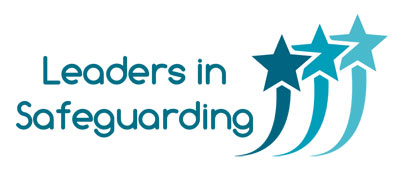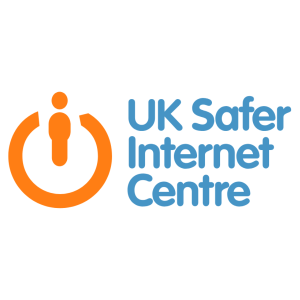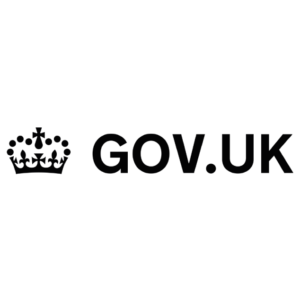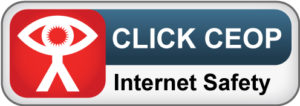- 0161 474 7603
- safeguarding@b2wgroup.com
SAFEGUARDING: EVERYBODY'S RESPONSIBILITY
At The B2W Group, protecting and safeguarding our learners is really important to us.
If you have concerns about your own well-being or safety, or need advice then please contact our Safeguarding team immediately.
Safeguarding covers:
- Protecting all learners from harm, regardless of their age, gender, religion or ethnicity.
- Promoting our learners’ health and development.
- Taking action to ensure all our learners are kept safe.
- Preventing harm to learners including harm such as abuse and bullying.
- Preventing learners being drawn into terrorism and being radicalised.
- Ensuring learners are in a safe environment.
Our Safeguarding Policy covers:
- Modern slavery and sexual exploitation
- Harm and abuse
- Protecting vulnerable learners
- B2W’s responsibilities in safeguarding learners
- Reporting concerns and dealing with disclosures
- Safer recruitment
- Modern slavery
- Child Sexual Exploitation (CSE)
- The Prevent duty
Meet our Safeguarding Team
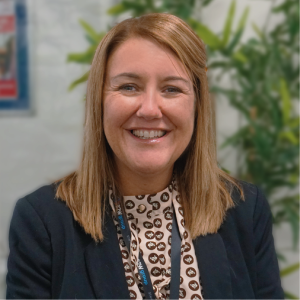
Alison Dann
Designated Safeguarding Lead

Chris Middleton
Safeguarding Officer
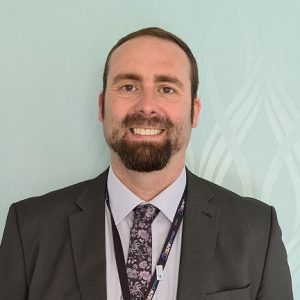
Ben Waite
Associate Director of People

Gayle Dawkes
Senior HR Executive

Natasha England
Group Head of Quality

Mark Jarman
Centre Manager - ECTA Training
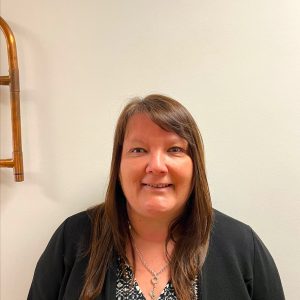
Stacey Verity
Apprenticeship Manager - ECTA Training
24-Safeguarding
You should report all Safeguarding concerns immediately by emailing safeguarding@b2wgroup.com
Alternatively, if you are concerned about exploitation or online abuse, or are worried about someone else, you can click on the ‘report abuse’ button on this page which will take you to the CEOP page (child exploitation and online protection centre).
Staying Safe Online
If you’d like to find out about staying safe online, visit the websites below:
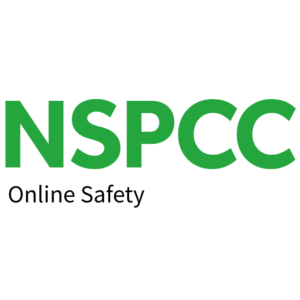
NSPCC Online Safety
Advice pages on keeping safe on the internet and social networks from the NSPCC website. Looks at the risks and dangers or being online, tips for parents on how to keep safe and how to talk to children about staying safe online.

Thinkuknow
Information for children, young people, parents and teachers on new technologies and the risks involved. There is an option for people to report if they feel uncomfortable or worried about someone they are chatting to online.
UK Safer Internet
Advice for children, young people, adults and professionals working with children on prevention and responses to threats, bullying and abuse online. They also host an annual “Safer Internet Day” in February each year.
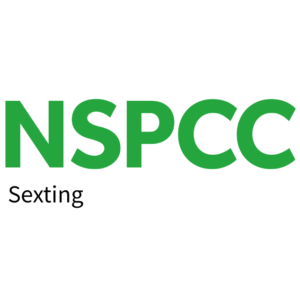
NSPCC Sexting
Information and advice on sexting from the NSPCC website. Covers what sexting is, motivations for young people sexting, the law around sexting, how to talk to a young person about sexting, actions to take if a child has been affected by sexting
SEXUAL ABUSE & SEXUAL HARASSMENT
Ofsted’s findings and recommendations on sexual harassment and sexual violence, including online sexual abuse.
THE PREVENT DUTY
If you’d like to learn about extremism, terrorism and ‘The Prevent Duty’, visit the sites below:
Prevent Programme
Find out how the Prevent programme supports people who are at risk of becoming involved with terrorism through radicalisation.
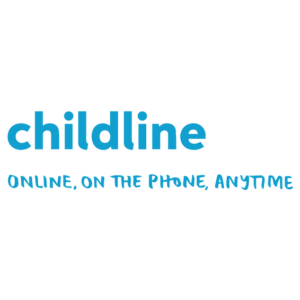
Worries About the World
Information on terrorism and radicalisation and what to do and information about being bullied or treated badly.
Signposting for adult stakeholders
CEOP is a command of the National Crime Agency and is dedicated to tackling the sexual abuse and exploitation of children and young people. CEOP helps children and young people under the age of 18 who have been forced or manipulated into taking part, or are being pressured to take part, in sexual activity of any kind. This can be both online and offline. The CEOP Safety Centre offers information and advice for children and young people, parents and carers and professionals. You can visit the CEOP Safety Centre and make a report directly to CEOP by clicking the Click CEOP button. Online bullying or other online concerns should not be reported to CEOP and children and young people should be directed to speak to an adult they trust, and/or referred to Childline, if they would like to speak to someone about how they are feeling.
Signposting for children and young people
CEOP helps any child or young person under the age of 18 who is being pressured, forced or tricked into taking part in sexual activity of any kind. This can be something that has taken place either online or in ‘the real world’, or both. The CEOP Safety Centre has clear information and advice on what can be reported to CEOP, the reporting process and what will happen if you do decide to make a report. You can visit the CEOP Safety Centre and make a report directly to CEOP by clicking the Click CEOP button. If you are experiencing online bullying or something else online has worried you please speak to an adult you trust, or you can talk to Childline at any time on 0800 1111 or at www.childline.org.uk.
Prevent Online Training
If you click on the link above and enrol/ register using your email address. You will then receive an email to click then access the training.
Scroll down the page and click on the left-hand column in pink called “side by side”.
This will allow you access to two videos and the 4 modules.
Each module has an achievement certificate which you will be able to download upon completion.
If you need any help just let your Skills Coach or Trainer know or email safeguarding@B2Wgroup.com
Want to Know More?
Child sexual exploitation is a form of child sexual abuse. It occurs where an individual or group takes advantage of an imbalance of power to coerce, manipulate or deceive a child or young person under the age of 18 into sexual activity (a) in exchange for something the victim needs or wants, and/or (b) for the financial advantage or increased status of the perpetrator or facilitator. The victim may have been sexually exploited even if the sexual activity appears consensual. Child sexual exploitation does not always involve physical contact: it can also occur through the use of technology.
Criminal exploitation of children is a geographically widespread form of harm that is a typical feature of county lines criminal activity: drug networks or gangs groom and exploit children and young people to carry drugs and money from urban areas to suburban and rural areas, market and seaside towns. Key to identifying potential involvement in county lines are missing episodes, when the victim may have been trafficked for the purpose of transporting drugs and a referral to the National Referral Mechanism98 should be considered.
The fabrication or induction of illness in children is a relatively rare form of child abuse. Where concerns exist about fabricated or induced illness, it requires professionals to work together, evaluating all the available evidence, in order to reach an understanding of the reasons for the child’s signs and symptoms of illness. The management of these cases requires a careful medical evaluation which considers a range of possible diagnoses. At all times professionals need to keep an open mind to ensure that they have not missed a vital piece of information.
A forced marriage is a marriage in which one entered into without full and free consent, of one or both parties and where violence, threats or any other form of coercion is used to cause a person to enter into marriage. Threats can be physical or emotional and psychological. A lack of full consent can be where a person does not consent or where they cannot consent (if they have learning difficulties for example).
Being homeless or being at risk of becoming homeless presents a real risk to a child’s welfare. The designated safeguarding lead (and any deputies) should be aware of contact details and referral routes in to the Local Housing Authority so they can raise/progress concerns at the earliest opportunity. Indicators that a family may be at risk of homelessness include household debt, rent arrears, domestic abuse and anti-social behaviour, as well as the family being asked to leave a property. Whilst referrals and or discussion with the Local Housing Authority should be progressed as appropriate, and in accordance with local procedures, this does not, and should not, replace a referral into children’s social care where a child has been harmed or is at risk of harm.
Occurs when a child under the age of 16 (18 if disabled) is provided with care and accommodation by a person who is not a parent, person with parental responsibility for them or a relative in their own home. A child is not privately fostered if the person caring for and accommodating them has done so for less than 28 days and does not intend to do so for longer. Such arrangements may come to the attention of staff.
Peer on peer abuse can take on many forms this can include:
- Domestic Abuse – an incident or pattern of actual or threatened acts of physical, sexual, financial and/or
- Child Sexual Exploitation – children under the age of 18 may be sexually abused
in the context of exploitative relationships and situations by peers who are also under 18.
- Harmful Sexual Behaviour – Children and young people presenting with sexual
behaviours that are outside of developmentally ‘normative’ parameters and harmful to themselves and others
- Serious Youth Violence – Any offence of the most serious violence or weapon
enabled crime, where the victim is aged 1-19′ i.e. murder, manslaughter, rape, wounding with intent and causing grievous bodily harm. ‘Youth violence’ is defined in the same way, but also includes assault with injury offences.
- Sexual violence can include rape, assault by penetration and sexual assault
- Sexual Harassment -unwanted conduct of a sexual nature
The term peer-on-peer abuse can refer to all of these definitions and a learner may experience one or multiple facets of abuse at any one time.
An estimated 200,000 children in England and Wales experience the imprisonment of a parent each year. This is far greater than the number of Looked After Children. Using the national estimate and population figures for 0 – 19-year olds across Greater Manchester from Public Health England’s 2014 Child Health Profile it is possible to estimate that around 10,700 children across Greater Manchester are affected. However in reality nobody really knows how many children are actually affected as this data is not routinely collected therefore there is no way of ensuring their needs are met.
The practice of breast ironing is seen as a protection to girls by making them seem ‘child-like’ for longer and reduce the likelihood of pregnancy and is usually carried out by the mother or grandmother with the father unaware
Parental misuse of drugs or alcohol becomes relevant to child protection when the misuse of the substances impacts on the care provided to their child/ren.
Misuse of drugs and/or alcohol is strongly associated with significant harm to children, especially when combined with other features such as domestic violence, mental illness and should prompt careful consideration as to how best families can be supported and where necessary children/young people protected.
Children and young people can also place themselves at risk through their own use of drugs and/or alcohol. Such activity also increases their vulnerability to other forms of harm such as Child Sexual Exploitation.
Belief in witchcraft, spirit possession and other forms of the supernatural can lead to children being blamed for bad luck, and subsequently abused. Fear of the supernatural is also known to be used to make children comply with being trafficked for domestic slavery or sexual exploitation.
Gender-based violence is violence directed against a person because of their gender. Both women and men experience gender-based violence but the majority of victims are women and girls.
Refers to the practice of rituals, challenges, and other activities involving harassment, abuse or humiliation used as a way of initiating a person into a group including a new fraternity, sorority, team, or club.
Children are vulnerable to extremist ideology and radicalisation. Similar to protecting children from other forms of harms and abuse, protecting children from this risk should be a part of a schools’ or colleges’ safeguarding approach.
Extremism 101 is the vocal or active opposition to our fundamental values, including democracy, the rule of law, individual liberty and the mutual respect and tolerance of different faiths and beliefs. This also includes calling for the death of members of the 100 Section 58(6) of the Female Genital Mutilation Act 2003 states teachers need not report a case to the police if they have reason to believe that another teacher has already reported the case.
101 As defined in the Government’s Counter Extremism Strategy. armed forces. Radicalisation102 refers to the process by which a person comes to support terrorism and extremist ideologies associated with terrorist groups.
The recruitment, transportation, transfer, harbouring or receipt of persons, by means of the threat or use of force or other forms of coercion, of abduction, of fraud, of deception, of the abuse of power or of a position of vulnerability or of the giving or receiving of payments or benefits to achieve the consent of a person having control over another person, for the purpose of exploitation. Exploitation shall include, at a minimum, the exploitation of the prostitution of others or other forms of sexual exploitation, forced labour or services, slavery or practices similar to slavery, servitude or the removal of organs
Bullying, especially if left unaddressed, can have a devastating effect on individuals. It can be a barrier to their learning and have serious consequences for their mental health. Bullying which takes place in educational places such as schools does not only affect an individual during childhood but can have a lasting effect on their lives well into adulthood. By effectively preventing and tackling bullying, schools can help to create safe, disciplined environments where pupils are able to learn and fulfil their potential.
The cross-government definition of domestic violence and abuse is:
Any incident or pattern of incidents of controlling, coercive, threatening behaviour, violence or abuse between those aged 16 or over who are, or have been, intimate partners or family members regardless of gender or sexuality.
Follow this link for more information and government advice.
FGM is illegal in the UK. It is a practice that takes place worldwide in at least 28 African countries and in parts of the Middle and Far East. It also takes place within parts of Western Europe and other developed countries, primarily among immigrant and refugee communities. UK communities that are at risk of FGM include Somali, Kenyan, Ethiopian, Sierra Leonean, Sudanese, Egyptian, Nigerian, Eritrean, Yemeni, Kurdish and Indonesian women and girls.
‘Honour-based’ violence (HBV) encompasses incidents or crimes which have been committed to protect or defend the honour of the family and/or the community, including female genital mutilation (FGM), forced marriage, and practices such as breast ironing. Abuse committed in the context of preserving “honour” often involves a wider network of family or community pressure and can include multiple perpetrators. It is important to be aware of this dynamic and additional risk factors when deciding what form of safeguarding action to take. All forms of HBV are abuse (regardless of the motivation) and should be handled and escalated as such. Professionals in all agencies, and individuals and groups in relevant communities, need to be alert to the possibility of a child being at risk of HBV, or already having suffered HBV.
Mental health includes our emotional, psychological, and social well-being. It affects how we think, feel, and act. It also helps determine how we handle stress, relate to others, and make choices. Mental health is important at every stage of life, from childhood and adolescence through adulthood.
Over the course of your life, if you experience mental health problems, your thinking, mood, and behavior could be affected. Many factors contribute to mental health problems, including:
- Biological factors, such as genes or brain chemistry
- Life experiences, such as trauma or abuse
- Family history of mental health problems
The practice of children (under the age of 18) sharing images and videos via text message, email, social media or mobile messaging apps has become commonplace. However, this online technology has also given children the opportunity to produce and distribute sexual imagery in the form of photos and videos. Such imagery involving anyone under the age of 18 is illegal.
Contextual Safeguarding is an approach to understanding, and responding to, young people’s experiences of significant harm beyond their families. It recognises that the different relationships that young people form in their neighbourhoods, schools and online can feature violence and abuse. Parents and carers have little influence over these contexts, and young people’s experiences of extra-familial abuse can undermine parent-child relationships.
Therefore, children’s social care practitioners need to engage with individuals and sectors who do have influence over/within extra-familial contexts, and recognise that assessment of, and intervention with, these spaces are a critical part of safeguarding practices. Contextual Safeguarding, therefore, expands the objectives of child protection systems in recognition that young people are vulnerable to abuse in a range of social contexts.

